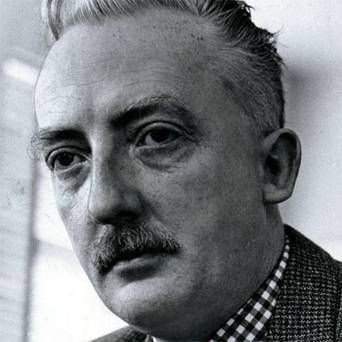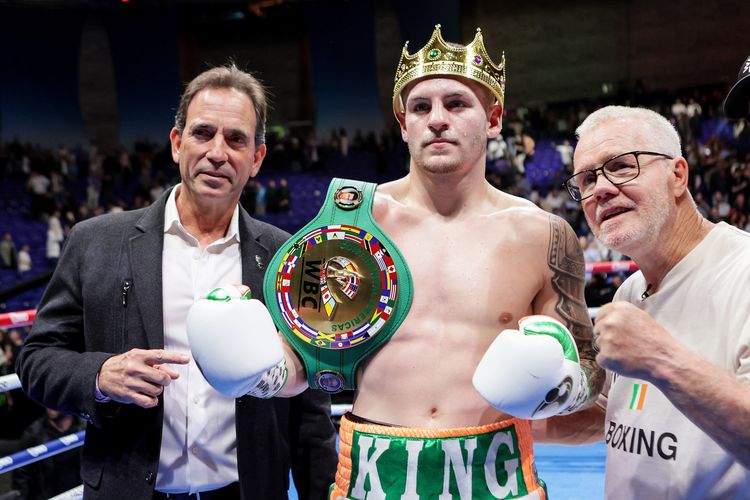The first voice I heard on the morning of September 11, 2001 was an Irish one - specifically, a Belfast one. After what would be the last truly normal weekend for a decade, with beautiful late summer weather that enticed my Joan and me into a tour of upstate New York, we had returned on the tenth to collect the two friends from Ireland who had just arrived and would be staying in our apartment in Little Italy.
The apartment was less than a mile from Joan's work, a building that was directly across the street from what would shortly become infamous as Ground Zero.
The evening of Sept. 10 was spent in laughter and song, clinking glasses and reverie with the two former blanket men who were enjoying the freedom of the city. Not long into a new century, a new millennium, there was peace in Ireland and Americans were actively involved in the energized process to create from conflict a just and equitable society. There was no thought that the morrow could bring anything but more progress, and we all went to sleep looking forward to another warm and cloudless day.
On September 11, 2001 I was a Detective Sergeant in the Manhattan South Homicide Squad. It would have been the third day of a three day "swing," or weekend. Our friends, Zack and Handsome Daithi, were up early and out of the apartment to take in as much of New York City as their time here would allow. I, taking advantage of the time off, tried to sleep in. Suddenly the apartment door burst open and Zack appeared, yelling, "McCabe, a plane just hit one of the towers." Knowing the messenger, I replied, "Get away, Zack, that's not funny." He cried, "I'm serious, McCabe," and from that moment the world was changed utterly in my sensibility.
Zack rejoined Daithi and both attempted to make their way the short distance, through the cordons being set up, to the site of the World Trade Center. They intended to assist in rescue efforts. They were turned back, and I would not speak to our guests for quite some time. Rising, and knowing my duty, I showered, dressed, and attempted to put my squad together. An accident of this magnitude would require every detective available to assist in the investigation. Then the second plane hit, and the unspeakable became crystal clear. This was no accident, but an orchestrated attack.
Looking back through the years, the images of the ensuing hours, days, weeks, and months are often vivid, sometimes vague, and sometimes just beyond reach.
They can arise unbidden, as non sequiturs in otherwise peaceful or unrelated circumstances. They can cause sudden and intense feelings of anger and sorrow -- even feelings of guilt -- that so many good and courageous people lost their lives while I, through circumstance, remained physically unscathed. Rarely, tears will spring to my eyes, to be quickly brushed aside, and not acknowledged.
Joan and I went to the roof of our building and briefly watched the disaster unfold, as around us neighbors looked dumbstruck, with horror in their eyes. I contacted my command for instructions as to where to mobilize my squad. I was told to stand by for orders, and continued to reach out for the detectives on my team, a highly skilled and accomplished group comprised of men and women, Americans of Irish, African, Italian, Hispanic and various other heritage. While mobilizing this team, the South Tower came down. I kissed Joan and prepared to leave, and promised to get in touch as soon as I could.
My squad and others assembled on the corner of Church St. and Barclay St. shortly after the North Tower collapsed, then relocated to 99 Church Street, a building that no longer exists, and established a command center. The clear blue sky had become totally obscured, and the grey dust of pulverized concrete filled the air as fires raged everywhere. Seven World Trade Center, which would shortly collapse as well, was entirely obscured above its lower floors. The images which would become my visual memories began to take the form of a perverse sped-up powerpoint: a quick prayer down the block where Fr. Mychal Judge lay at the altar in St. Peter's; an Emergency Service Sergeant friend who I encountered as he led a single line of E-men from the North Tower, sadly shaking his head when asked how bad were the losses. The twisted skeletal remains of the once majestic towers; buried emergency vehicles; the ebb and flow of firemen and cops leading civilians from the area.
We began setting up temporary morgues and collection areas for the remains of the lost. I recall a man I knew to be of the utmost courage begin to shudder at the sound of jet engines in the sky, the source obscured by smoke and dust. He believed it could have been a second wave of attacks when the word came that the jets were our own Air Force, now in sorties above Manhattan.
As we began to organize operations in our command center, taking head counts and preparing rosters, bringing in supplies and staging vehicles, a construction worker from Tyrone came through the door, stripped to the waist and pushing a hand truck, the cement dust coating his shaved head and the rest of his body, giving him the appearance of an animated statue. "Alright," he said, "what would ye's have me do?" His appearance, demeanor, and courage caused a roar of appreciation, and he was set straight to work loading supplies. After hours down at the site, we were ordered to St. Vincent's Hospital where we were examined, our eyes washed and breathing checked. We then returned to be deployed in many areas.
That day and the ensuing ones are so full of vignettes that they can't be recalled in this short column, but included liaising at the Medical Examiner's Office, digging at the site itself, investigating reports of charlatans and souvenir hunters who defiled the site, numerous recoveries and funerals, and supervising large teams of detectives who painstakingly combed through the debris at the Great Kills site in order to bring some solace and acceptance to the bereaved, counter terror investigations, and many other related duties.
The sacrifice and loss of that day will be with us always, and everybody was affected in some significant way. I know very few New Yorkers who were not connected somehow to someone who was lost. When I finally returned home at 2 a.m. on Sept. 12, Joan was waiting in an apartment that was reeking from the smoke of the fires still burning in the near distance. She, who is originally from Louisiana, told me of a neighbor from Baton Rouge who had been killed in the simultaneous attack on the Pentagon.
Many things have changed, and much has happened in the almost 4,000 days since. In harkening back to that period 10 years ago, I always try to recall the success of the massive effort to empty the Towers prior to their collapse, the many thousands who were led from those doomed buildings by the courageous first responders, too many of whom did not survive themselves. I think often of the ever growing list of responders coming down now with rare cancers and the profiteering and politicking surrounding them.
When I most need to, I think of the many civilians lining West Street and their cheers and encouragement as emergency workers entered the area for months after the attacks. I wish that the spirit and solidarity displayed then could be renewed and carried forward as the true legacy of those painful days.










